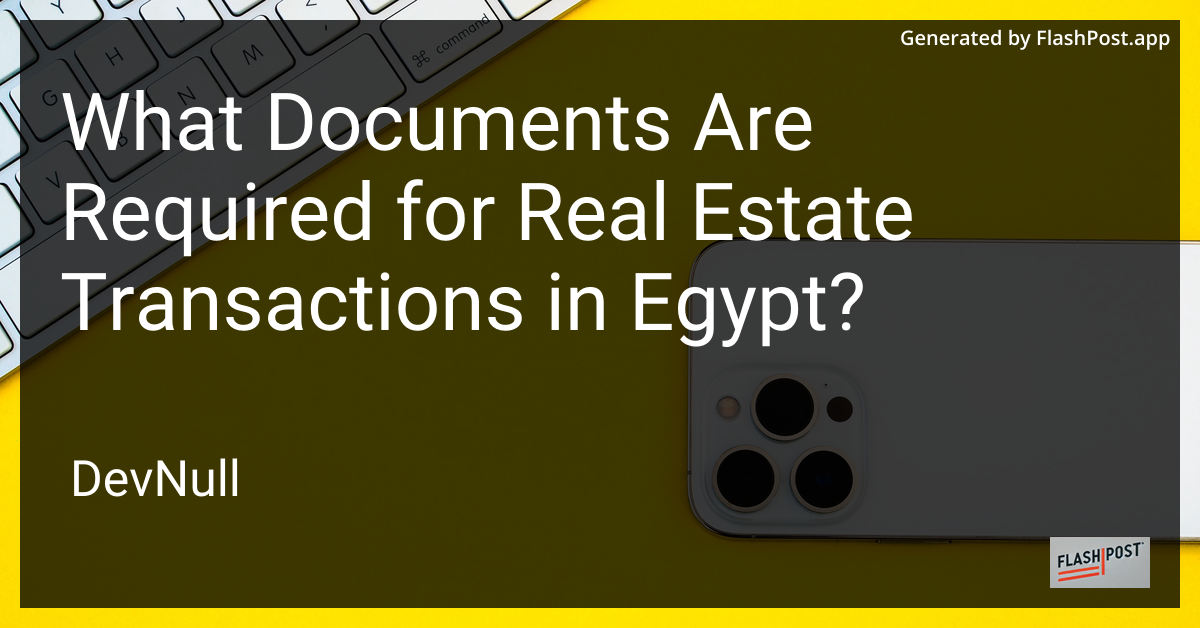

What Documents Are Required for Real Estate Transactions in Egypt?
Navigating real estate transactions in Egypt can be a complex process. Whether you’re a local or an international investor, understanding the required documentation is crucial for a smooth transaction. This guide provides an overview of the key documents you need to prepare when dealing with real estate in Egypt.
Key Documents Required
-
Title Deed: The most critical document in any real estate transaction, the title deed proves ownership of the property. It is essential to ensure that the title is clear and free of any encumbrances.
-
Sale and Purchase Agreement: This legally binding contract outlines the terms and conditions agreed upon by the buyer and seller, including the purchase price, payment plan, and any contingencies.
-
Proof of Identity: Both parties in the transaction must provide official identification. For Egyptian nationals, this typically includes a national ID card, while foreigners must provide a valid passport.
-
Tax Clearance Certificate: This document confirms that the property is free of any outstanding tax obligations. It is crucial to obtain this certificate to avoid any future liabilities.
-
Building Permits and Approvals: If the property in question involves construction, you need to present all relevant building permits and approvals to ensure the structure complies with local regulations.
-
Power of Attorney: If either party is represented by an agent, a notarized power of attorney is necessary to validate the agent’s authority to act on behalf of the principal.
-
Property Appraisal Report: Conducted by a certified appraiser, this report provides an unbiased estimate of the property’s market value, which can be pivotal in securing financing.
-
Land Survey: This document verifies the property’s exact boundaries, which is essential to prevent future disputes over land ownership.
-
Mortgage Documentation: If the purchase involves a mortgage, all related documents, including the loan agreement and payment schedule, must be prepared.
-
Insurance Policies: Insuring the property can provide added security for both the buyer and the seller. Ensure all relevant insurance policies are updated and transferred as needed.
Conclusion
Successfully navigating the real estate market in Egypt requires meticulous preparation and understanding of the local legal framework. Ensuring that all required documents are correctly prepared and validated can significantly streamline the process. Whether you’re investing domestically or considering opportunities abroad, understanding these requirements is the first step towards a successful real estate transaction.
For further insights and investment tips, consider exploring various real estate investment opportunities. If you’re interested in learning how to maximize your investment in real estate, check this detailed guide on how to invest $100,000 in real estate. Additionally, for those looking into the domestic market, you might find strategic options for real estate investment in Iowa. With the right knowledge and resources, you can make informed decisions and thrive in the real estate market.
